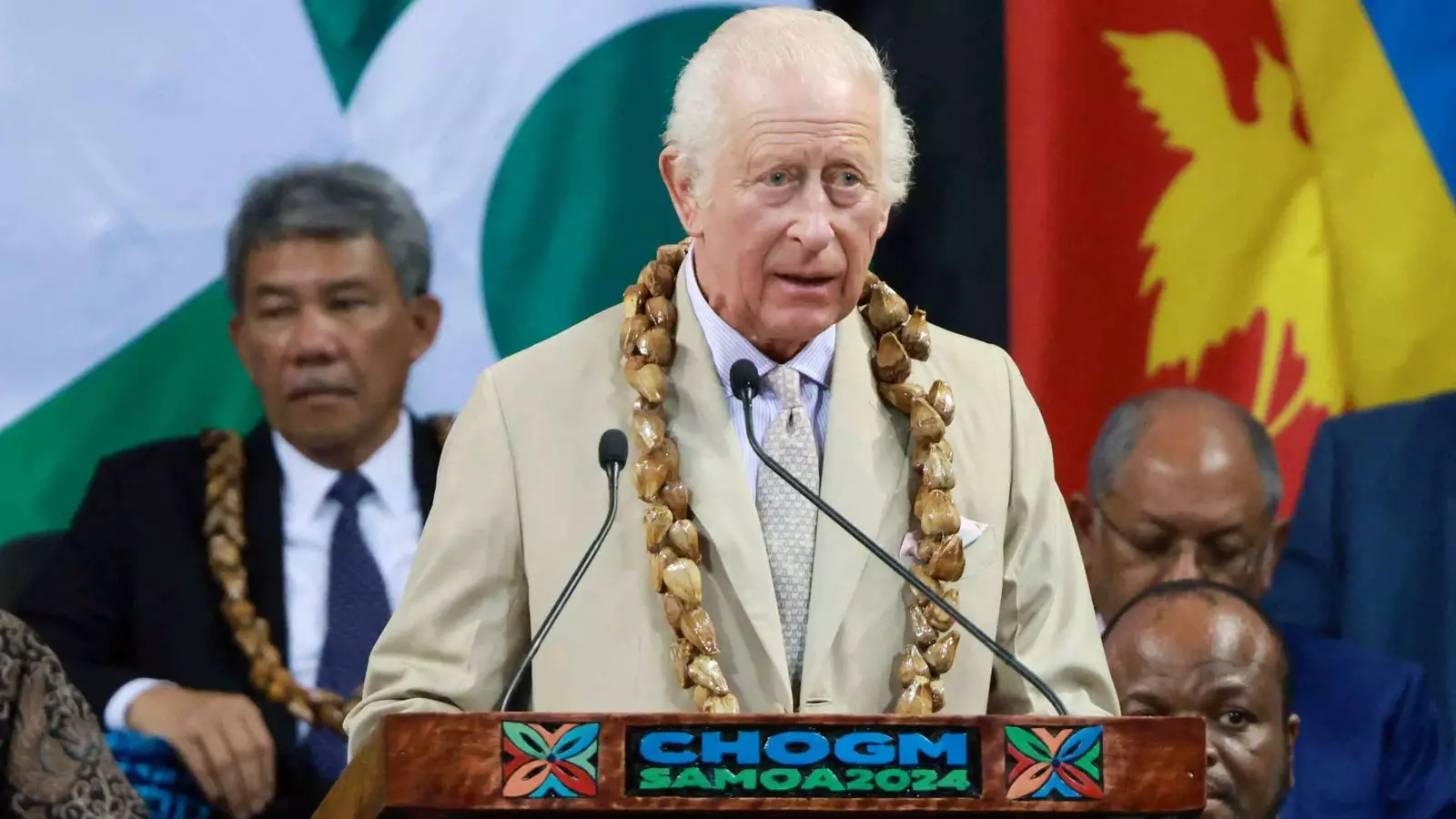The Commonwealth, a collection of nations united by historical ties and shared values, is facing mounting challenges as it grapples with its colonial legacy. Recently, during his first address to Commonwealth leaders in Samoa, the King touched upon a subject that has been simmering for centuries: the repercussions of slavery. This meeting was marked by an overarching theme of a “common future,” yet beneath this optimistic facade lies a network of growing divisions that threaten the integrity of this alliance of nations.
The King’s speech was a pivotal moment designed to reaffirm the Commonwealth’s commitment to progress and unity. While he expressed the importance of recognizing the “painful aspects of our past,” his rhetoric notably avoided the contentious terms “slavery” and “reparations.” This omission has left many in Caribbean and African nations feeling unheard and disillusioned. Eric Phillips, a crucial figure in the reparations movement, articulated the gravity of this oversight, labeling the situation as an “existential crisis” for the Commonwealth.
Such a reaction underscores the difficulties the monarchy faces in addressing these historical grievances without alienating modern political dynamics. The British royal family, whose history is intertwined with the slave trade, must tread carefully between acknowledgment and actionable reparations, which have been repeatedly called for yet remain largely unaddressed.
Phillips’ forthright statements about reparations reflect a broader discontent among many nations within the Commonwealth. Calls for a formal apology are growing louder, and as national leaders such as Sir Keir Starmer adopt ambivalent stances, the fabric that ties these nations together frays further. The sentiment expressed, “No reparations, no trade,” encapsulates the seriousness of attitudes shifting dramatically against the Commonwealth’s foundational purpose.
The notion that the Commonwealth should provide reparations as a means to rectify historical injustices is gaining traction. It challenges member nations to evaluate their level of commitment to the principles of equality and justice in a modern context. Transformation of perception regarding the Commonwealth’s relevance is critical, especially when leaders show reluctance to act upon such significant historical sins.
Ultimately, the King’s speech, while laden with an optimistic vision for a harmonious future, risked glossing over the urgent discussions surrounding the inherent inequalities born from colonialism. To sow the seeds of genuine unity, an acknowledgment of past wrongs must evolve into actions that reflect a commitment to reparative justice. Ignoring these facets is a dereliction of duty, both politically and morally.
As the Commonwealth navigates these turbulent waters, it stands at a crucial juncture. The King’s call to learn from history is essential, but it must be accompanied by decisive steps toward introspection and restitution. Only then can the Commonwealth truly coalesce into a body that resonates with the ideals of justice, equality, and shared future that it espouses. In failure to address these issues, the Commonwealth may risk becoming a relic of its past rather than a beacon of hope for the future.


Leave a Reply